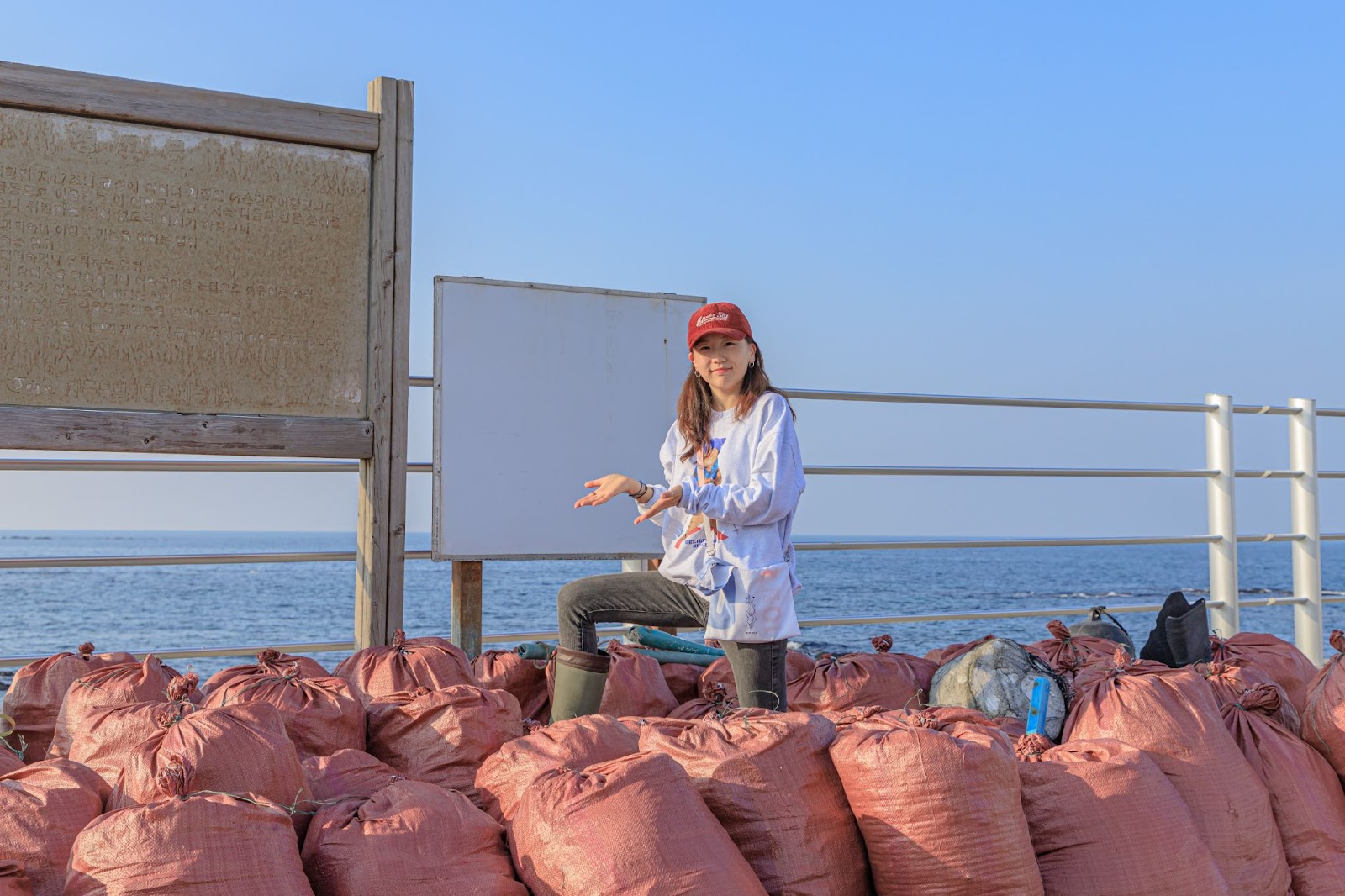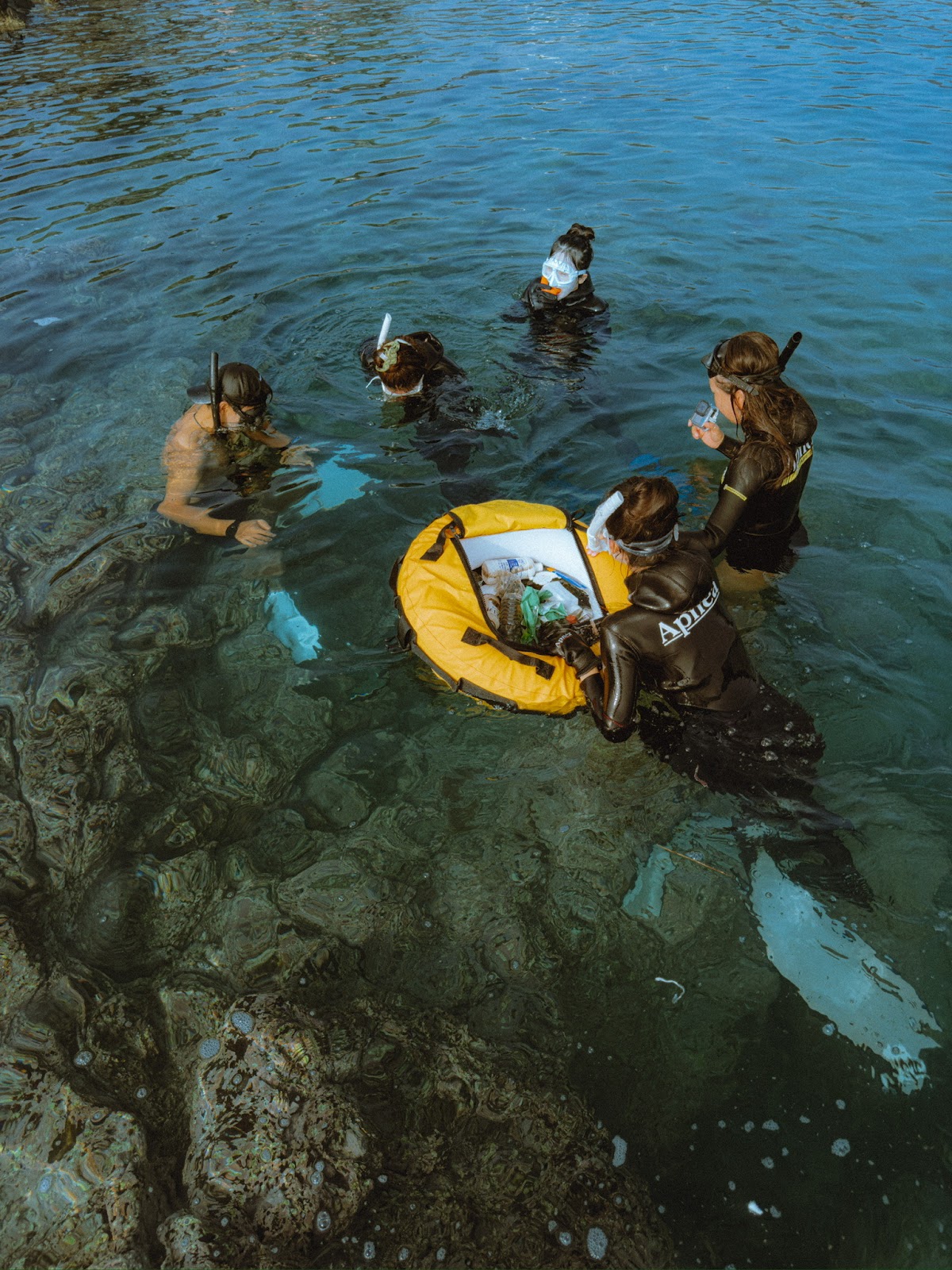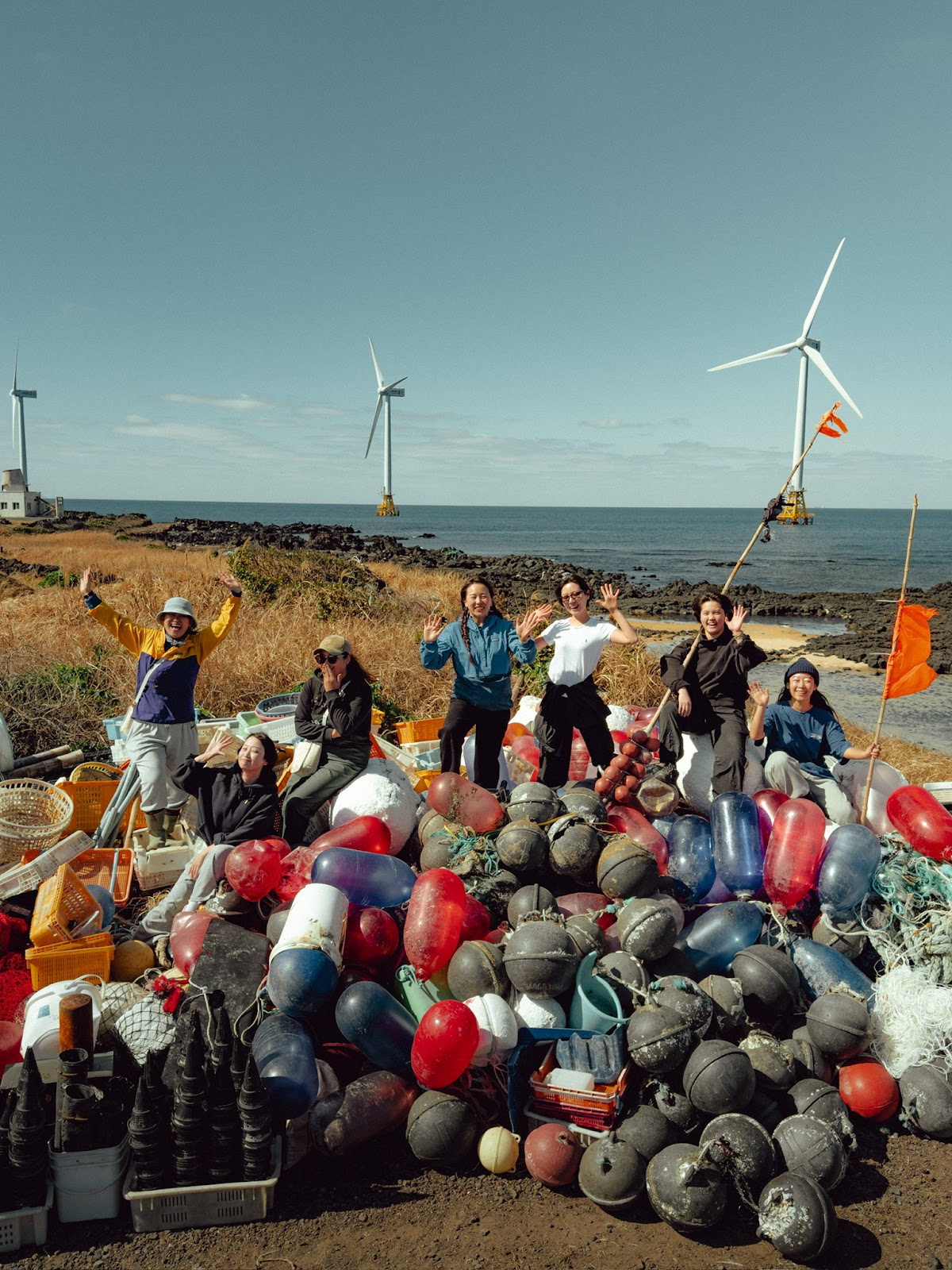- 한국어
- English
- 日本語
- 中文
- العربية
- Español
- Français
- Deutsch
- Pусский
- Tiếng Việt
- Indonesian
By Honorary Reporter Myrtle Iris Villaraza from Philippines
Photos = Subin Byeon
The nation's top tourism island of Jeju is plagued by marine waste pollution, something highlighted in June when the Jeju Tourism Organization featured the organization Diphda Jeju on social media for World Environment Day.
Launched in 2018, Diphda Jeju focuses on "bonggeuging," or beach clean-ups, and "green diving," in which qualified divers remove sea debris. An estimated 4,000 people have participated in the group's activities, and it collaborates with groups like the Italy-based Plastic Free, and on World Environment Day, it collected 10 sacks of a combined 72 kg from Jeju's Gonae area.
Diphda Jeju has received the SBS Ecowater Award, Minister of Culture, Sports and Tourism Prize, and Herald Eco Award. Founder Byeon Su-bin, who moved from Busan to the island 14 years ago, in 2022 was named one of Sisa Journal's "100 Next-Generation Leaders" and served on Jeju's 2050 Carbon Neutral Green Growth Committee last year.
The following are excerpts from an email interview with Byeon from June 10 to July 16.

Byeon Su-bin is the founder and president of the Jeju Island-based marine waste collection group Diphda Jeju.
Why did you launch your group?
Diphda Jeju began as a small group of ocean-loving friends who often noticed marine debris on visits to the sea. My passion for the ocean got me to start collecting trash to prevent pollution. Our initial goal wasn't well-defined, but our activities showed the severity of marine pollution affecting Jeju's waters. Our focus now is raising awareness of the importance of consistent and enjoyable marine debris collection.

Diphda Jeju's "green divers" fish out trash from the island's waters.
Why did you select the terms "Diphda" and "bonggeuging?"
The name "Diphda" is from the brightest star of the Cetus (whale) constellation. Inspired by the whale's oceanic habitat, I chose this name to symbolize our goal of shining a light on marine conservation.
"Bonggeuging" combines the Jeju dialect term "bonggeuda" that means to pick up with plogging, a Swedish-English term referring to the practice of "picking things up while jogging."
What activities does your marine waste collection entail?
The primary initiative is "Bonggeuging Together," which is held over 10 times a month. We announce the schedule and recruit participants for this beach clean-up.
Another is "green diving," which focuses on collecting ocean debris through diving by individuals with a freediving license and considerable experience. Diphda Jeju also offers training for new divers, providing environmental instruction on debris collection to prepare them for participation.
For larger-scale issues, "sweeping" has 30-40 participants collect a large volume of trash, often exceeding a ton. Due to the demanding work, participants are rewarded through sponsorships from brands and companies.

Diphda Jeju chief Byeon Su-bin (center in blue jacket) and participants pose with trash they collected during "bonggeuging."
How much trash has Diphda collected since its launch in September 2018?
We've conducted approximately 377 activities to collect an estimated 91 tons of trash: 40 tons through 2022, 26 last year and over 25 in the first half of 2024.
Marine waste, which is not treated as general waste due to its salty nature, is reported to township or government offices after collection. It is then transported by marine waste treatment companies or government agencies to designated collection sites. From there, part of it is sent to landfills and the rest is stored in the central mountainous area of Jeju.
What do you consider Diphda Jeju's biggest accomplishment?
We've won the grand prize at the Herald Eco Awards and SBS Water Environment Award in the civil society category. I think we received these awards because they recognized our consistent activities. We have been consistently active and I think this is because of our participants, who've been with us continuously.
Are Diphda Jeju's activities open to everyone?
Our activities are open to everyone, but our scope has been limited since we mainly use Instagram to announce things. We will work to expand our channels and create programs so that more people can participate.
What is your message on protection of the marine environment?
The world's largest part of nature is the oceans since they produce two-thirds of the oxygen we breathe. We don't know much about the ocean, but if you know something, you can love it. People can perform many activities in daily life to save the oceans, not just collecting marine debris. Just practice one of them.
msjeon22@korea.kr
*This article is written by a Korea.net Honorary Reporter. Our group of Honorary Reporters are from all around the world, and they share with Korea.net their love and passion for all things Korean.